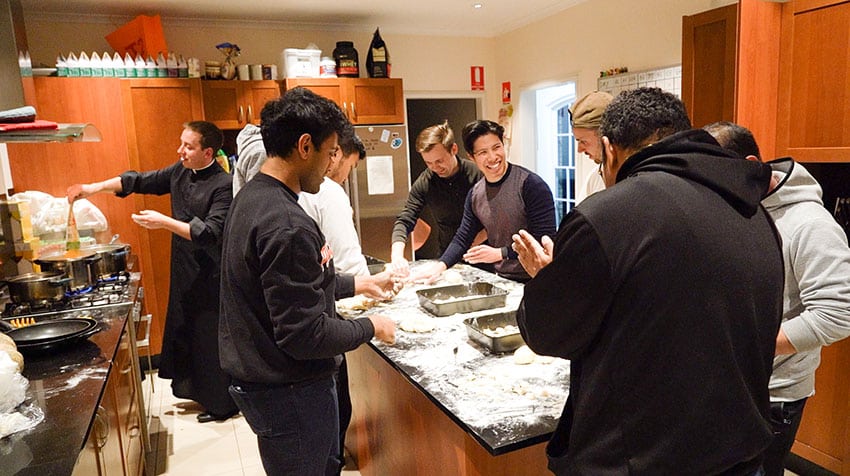
A question the Church must ask is, where are the dads?
Over the last two years I’ve worked in Houses of Discernment which were set up for young young men in our 20s where we were able to go deeper in our faith and understand how integral it was to our world and our understanding of life and how we relate to others
Two of the common threads that came up during my time managing these houses was 1) How many of these young men felt isolated and abandoned by society and 2) Male role models in the faith for many of them were also few and far between.
While this is my lived experience, If we were to look at the demographics of practicing Catholics in our Church today, a group of young men who loved Jesus and the Church is somewhat of an anomaly, might even more accurately be described as a minority.
The latest Census in 2016 showed us that less than one third of practicing Catholics across the country were male and the smallest demographic of those practicing being under the age of 30.
Bishop Olmstead in the Diocese of Phoenix highlighted a key point in his exhortation “Into the Breach” where he spoke about the cultural trend that many young men are choosing to identify as being of no religion rather than Catholic. In my opinion this is one of the most significant crises that we as a church are yet to be able to address.
If we do not work to engage our young men, the priestly vocational crisis will be the least of our worries. This is due to when we look at the practicing trends of families as a church, we know statistically if we as a church can engage a father into the faith, we will more then likely have the whole family join him in the life of the church as well.
We also know that from studies that if a father and mother attend Mass together with their children there is a 33 per cent likelihood that the children will regularly practice the faith into adulthood, however if the father does not practice regularly and the mother does then the likelihood of children practicing into adulthood then drops to two per cent.
As a church we need to reaffirm our commitment to fatherhood as being an admirable ambition and accompany our young men and fathers to be the foundational leaders of their families and the wider community as the role of a father in the lives of his children is not replaceable.
My thinking is if we address the missing demographic of our young men and fathers we will also be addressing a big part of our concerns for our families and young people. If the father plays such a vital role in the passing of the practicing of faith to his children maybe we need to instead of simply asking “Where are our young people?” begin to ask the question “Where are their Fathers” .
With this in mind I put forward this Plenary Council to acknowledge and address the question “Where are our men?” To fail to do this, would be to ignore the needs of a pivotal group of people who need our support and need to be recognised for the particular gifts they bring to our Church, our families and our society.
